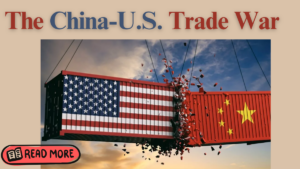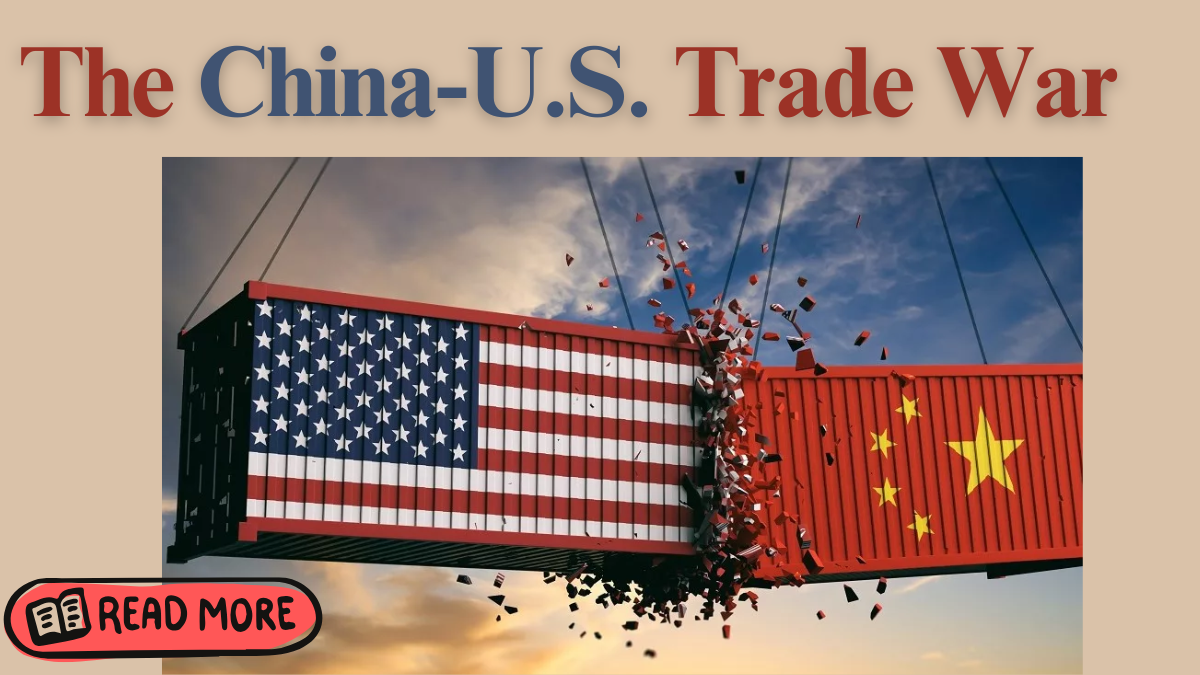Beijing has entered into the ongoing wars between the United States and China. Beijing announced that it would also implement tariffs in accordance with the United States’ recent moves. Following a blanket 10% tariff on all Chinese goods imposed in early February 2025, former President Donald Trump ramped up the pressure by hiking the tariff rate to 20% just last week. All these things have created tension between the world’s two largest economies and concern about the potential long-term effects on global trade.

The U.S. Tariffs on China
The U.S. government, i.e Donald Trump, added a 10% tax on all Chinese products in February 2025. Donald implemented this tax because they believed that China was doing an injustice by stealing their ideas and forcing American companies to share their technology.
The said move was not very effective, so Donald Trump doubled the tax from 10% to 20%. All this made China so upset as it was against the rules of international trade and hurt their businesses.
Why the U.S. Raised the Tariff Rate
The decision to increase tariffs stems from a few factors. The U.S. administration has expressed frustration with China’s unwillingness to address key trade issues, such as the forced transfer of U.S. technology and the protection of intellectual property. In addition, despite previous negotiations and agreements between the two countries, the U.S. has accused China of not following through on commitments made during earlier trade talks.
The 20% tariff is intended to push China into making more concessions on these issues, as well as to increase pressure on Chinese companies that rely heavily on U.S. exports.
Beijing’s Response
In response to the U.S., China has said it will put taxes on American products too, but they haven’t said which ones yet. In the past, China has used these taxes to hurt the U.S. by targeting things like farm products and technology.
China also said it wants free trade and that more taxes will hurt both countries and cause problems for the world economy. They warned that the new taxes could hurt U.S. businesses that sell things to China, especially in farming, cars, and electronics.
The Impact on Global Trade
Key Sectors Affected by the Tariffs
The tariff hikes are likely to have a significant impact on a range of industries. Some of the sectors most vulnerable to the trade war include:
1. Agriculture
One of the sectors that has already been heavily affected by the trade war is agriculture. U.S. farmers, particularly those in states like Iowa and Nebraska, have faced retaliatory tariffs on crops such as soybeans, pork, and corn. These industries are deeply tied to the Chinese market, and the tariffs have hurt profits, with some farmers reporting a sharp drop in exports to China.
2. Technology
The technology sector has also been a central point of contention between the U.S. and China. Companies that rely on Chinese manufacturing or exports of tech products are now facing higher costs due to tariffs. Additionally, the semiconductor industry and telecommunications companies could be negatively impacted by the rising tensions, as both China and the U.S. compete for dominance in these fields.
3. Automobiles
The automobile industry is another area where the tariffs could take a toll. Chinese tariffs on U.S. cars have already increased the price of American-made vehicles in the Chinese market, which has resulted in decreased sales for U.S. car manufacturers. If the tariff rate increases further, U.S. automakers may need to rethink their production strategies or face additional losses in one of the world’s largest car markets.
4. Consumer Goods
With both countries imposing tariffs on a variety of consumer goods, the prices of everyday products could rise. From electronics to clothing, shoppers may start to see higher prices on goods imported from China or the U.S. as companies pass on the increased costs to consumers. This could lead to a slowdown in consumer spending, which is a key driver of economic growth.
What’s Next in the China-U.S. Trade War?
The China-U.S. trade war doesn’t seem to be stopping anytime soon. Both countries are sticking to their tough positions on the issues. The taxes (tariffs) that have been added so far are just the start, and experts think there could be more trade barriers if things keep getting worse.
Right now, businesses and shoppers will have to get ready for the effects of the higher taxes. Companies that depend on trading with other countries might need to change their plans, and people could see higher prices on things they buy every day. Both China and the U.S. have talked about negotiating, but it’s not clear when or how things will get better, and it looks like the trade war will go on for a while.
Conclusion
The escalation of the China-U.S. trade war with the new 20% tariff marks a critical moment in the ongoing dispute between the two superpowers. As Beijing prepares to implement counter-tariffs, the global economy faces increasing uncertainty. While the trade war may continue to impact businesses and consumers, both countries will have to decide if a resolution can be reached or if the tariffs will continue to grow.
For now, it’s clear that global trade will be affected, and many industries may face challenges in the months ahead. As the situation develops, we can only wait to see how both sides will respond and what the long-term consequences will be for the global economy.
FAQs
1. Why did the U.S. increase the tariff rate on Chinese goods?
The U.S. raised the tariff rate to 20% as a response to China’s unwillingness to meet trade demands, particularly related to intellectual property and technology transfers.
2. What sectors will be affected by the new tariffs?
The agriculture, technology, automobile, and consumer goods sectors are likely to face significant impacts from the new tariffs.
3. What is China’s response to the U.S. tariffs?
China has promised to impose counter-tariffs on American goods in retaliation for the U.S. tariff hike.
4. How will the trade war impact the global economy?
The escalating tariffs could disrupt global supply chains, raise prices for consumers, and contribute to economic uncertainty worldwide.
5. When will the tariffs take effect?
The new tariffs are expected to take effect soon, with both countries making preparations for the next phase of the trade war.
Click here to learn more.
Pari is a passionate writer known for captivating stories that blend imagination and reality. Inspired by travel, history, and everyday moments, Pari crafts narratives that resonate deeply with readers.
